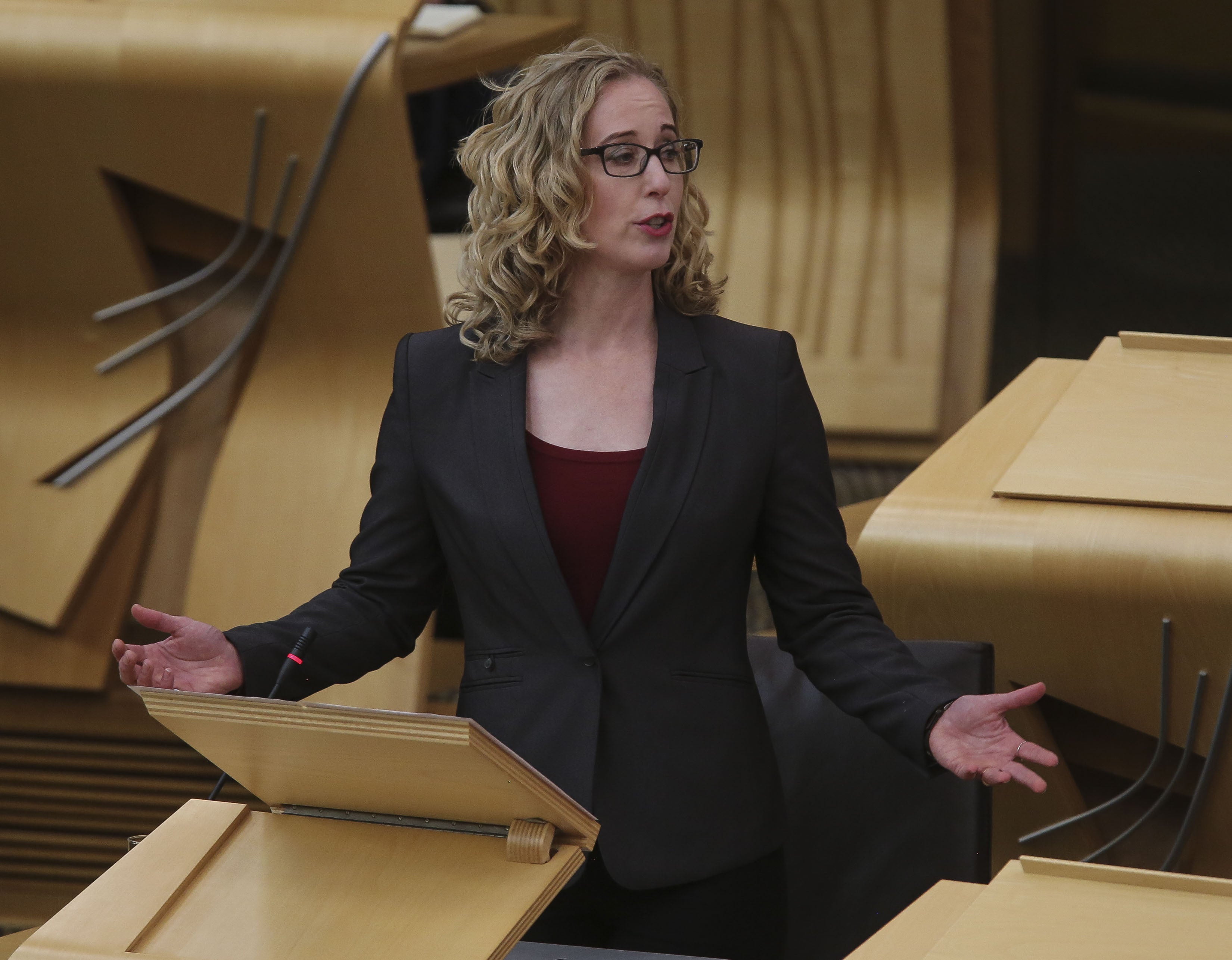Concerns raised about decision to delay deposit return scheme
Scottish Green minister Lorna Slater defended the delay to the deposit return scheme but stonewalled questions about the company leading the project.

Your support helps us to tell the story
From reproductive rights to climate change to Big Tech, The Independent is on the ground when the story is developing. Whether it's investigating the financials of Elon Musk's pro-Trump PAC or producing our latest documentary, 'The A Word', which shines a light on the American women fighting for reproductive rights, we know how important it is to parse out the facts from the messaging.
At such a critical moment in US history, we need reporters on the ground. Your donation allows us to keep sending journalists to speak to both sides of the story.
The Independent is trusted by Americans across the entire political spectrum. And unlike many other quality news outlets, we choose not to lock Americans out of our reporting and analysis with paywalls. We believe quality journalism should be available to everyone, paid for by those who can afford it.
Your support makes all the difference.The private firm involved in the Deposit Return Scheme (DRS) was arranging contracts with a delayed start date before Scottish Government ministers had agreed to postpone it, a Holyrood Committee has heard.
The Scottish Green government minister Lorna Slater announced in December last year that a deposit scheme for single-use bottles and cans was being delayed again, and the anticipated start date was pushed back to August 2023.
Giving evidence to Holyrood’s Net Zero Committee, Ms Slater insisted that the decision to further delay the recycling policy was still “very much under full assessment” in November.
But it has been claimed that the private company responsible for the long-delayed DRS scheme had already issued tenders in October with the later start date, raising questions about when the decision was made.
It appears as if the minister isn't in control of Circularity Scotland and therefore how can we as parliamentarians have any confidence that this shambolic scheme, shrouded in secrecy, can actually be delivered?
Challenged about the apparent conflict, Ms Slater told MSPs: “Circularity Scotland is a private company, it was established by the industry to lead on the delivery of the DRS and, as an independent private company, its procurement decisions and processes are private and its business and not for government intervention.”
Asked whether she was aware that contracts with a later start date were being offered two months before the decision to delay as supposedly finalised, the Scottish Green MSP said: “Circularity Scotland’s procurement procedures, as a private company, are the business of Circularity Scotland – not the Scottish Government.”
Ms Slater, the minister for the circular economy, also admitted the firm – made up of drink suppliers and producers – does not have to respond to Freedom of Information requests, amid alarm about a lack of transparency.
Scottish Conservative committee member Maurice Golden said: “I have real concerns about the delivery of this scheme. It appears as if the minister isn’t in control of Circularity Scotland and therefore how can we as parliamentarians have any confidence that this shambolic scheme, shrouded in secrecy, can actually be delivered?
“It’s worth noting that the Scottish Government could have set up an independent, non-departmental public body to deliver the scheme, but they chose to create a private company that then refuses to reply to Freedom of Information requests which I’ve sent in.
“There’s a big question here on the secrecy angle if Circularity Scotland is issuing tenders with a launch date of June 2023 in October, and the minister isn’t aware of that, how can we possibly be assured that the scheme with this new delay will be delivered on that date?”
Ms Slater reiterated that there were now planned “milestones” for the introduction of the scheme, including the signing of contracts by Circularity Scotland, an awareness campaign and the construction of counting and sorting centres starting in August of this year.
She added: “I understand Mr Gordon’s frustration, but it is an industry-led scheme so this is on the principle that the polluter pays rather than having the public purse and taxpayers’ money being used to set this scheme up – industry is setting the scheme up themselves.
“This has the advantage of meaning that industry is paying for it but it does mean of course that it is one step removed from government and not subject to FoI, and so forth.
“But it also has the advantage that it has industry expertise and they are absolutely incentivised to bring in the scheme, not only philosophically because they understand the importance of the environment, but because this scheme will generate something in the order of £600 million per year in Scotland – there is a lot of money to be made in this, industry knows that.”